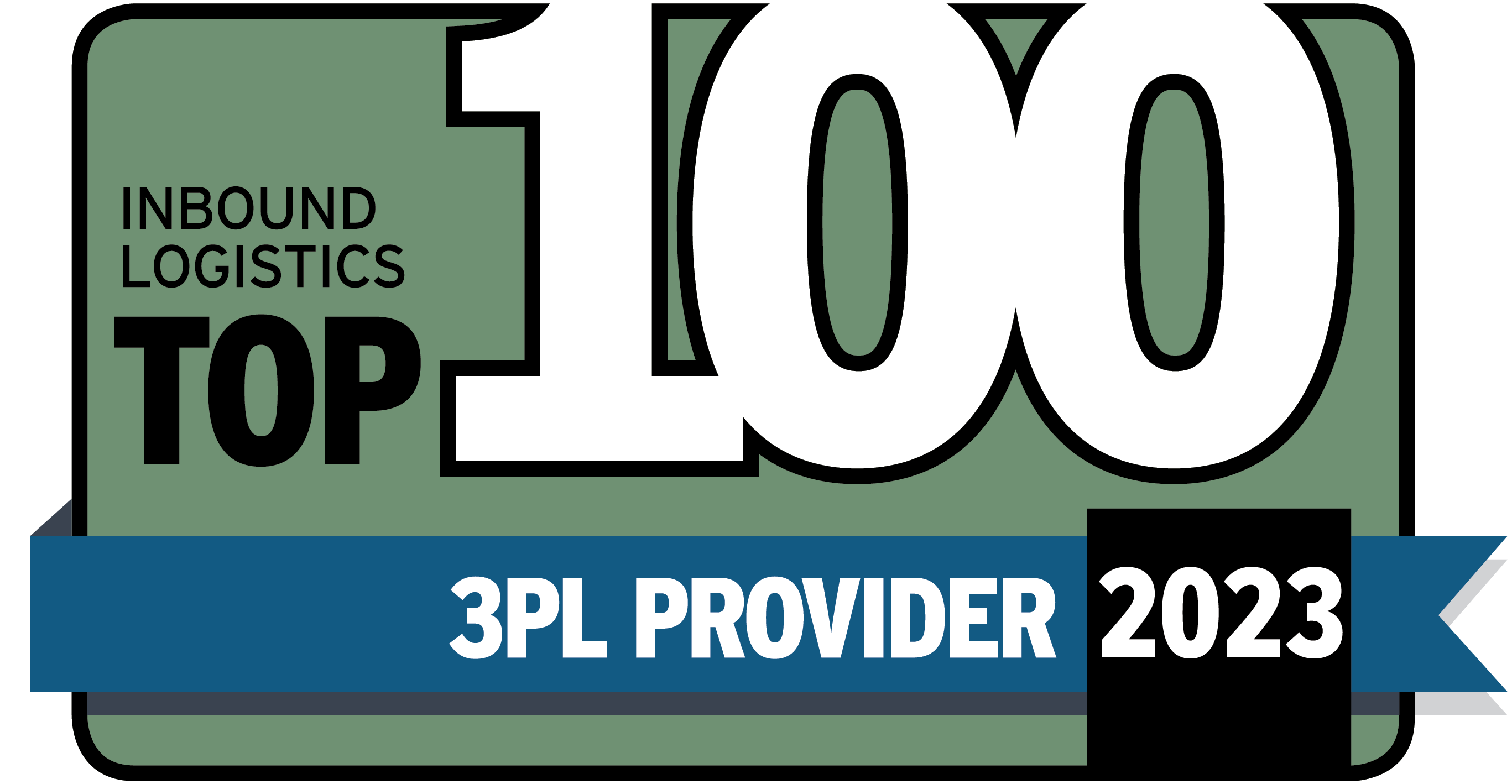Latest index shows tumbling truckload rates, cooling LTL costs and conflicting forces pressuring parcel rates.
ATLANTA, Ga. (Apr. 11, 2023) – AFS Logistics, an industry-leading third-party logistics (3PL) provider, and TD Cowen announce the Q2 2023 release of the TD Cowen/AFS Freight Index, a snapshot with predictive pricing for truckload, less-than-truckload (LTL) and parcel transportation markets. The latest release of the index projects LTL rates to level off after a sharp drop in Q1 and truckload rates to continue their decline, while per-package parcel rates remain elevated as record-high general rate increases (GRIs) and the lingering strength of last year’s fuel surcharge increases clash with falling volumes.
“A year ago, rapid increases in fuel prices provided a pronounced mechanism for carriers to earn windfall profits. However, while diesel prices fell to their lowest level in over a year, certain carriers continue to eke out disproportionate profits from their revised fuel surcharges,” says Tom Nightingale, CEO, AFS Logistics. “This serves as further evidence of the fact that shippers need the voice of experience with them at the negotiating table.
Key implications for ground and express parcel
As in other modes, decreasing fuel prices are having an impact on ground and express parcel rates, but parcel fuel surcharges have not fallen to the same extent as the actual fuel price indices. Since fuel surcharges peaked in Q2 2022, the on-highway diesel index has dropped by 18% while ground fuel surcharges only dropped 13%. Over the same timeframe, the U.S. Gulf Coast kerosene-type jet fuel index dropped 22%, but express fuel surcharges only decreased by 19%.
“The multiple fuel surcharge increases announced last year and the recent record-high GRIs continue to be effective tools for carriers as they seek to maximize per-package yield in the face of falling volumes,” says Micheal McDonagh, President, Parcel, AFS Logistics. “Carriers have also extended peak surcharges indefinitely since January which is another effective tool to drive an increase in revenue per package.”
In ground parcel, rates increased 4% quarter over quarter (QoQ) in Q1 2023, driven in part by the seasonal rebound of average billed weight per package, a 4.5% QoQ increase. However, ground parcel data also indicates an average discount increase of 1.6%, suggesting that carriers had to raise discounts to counteract the impact of the record-high 2023 GRI. Looking forward to Q2 2023, the ground parcel index is expected to remain at historically high levels, increasing 1.7% QoQ to 31.7% above the January 2018 baseline.
In Q1 2023, express parcel rates grew 4.6% QoQ, despite decreases in average billed weight and average zone. This higher-than-expected increase was predominantly driven by the record-high GRI, which appears to be ‘stickier,’ or more resistant to the impact of shipper negotiation and discounting, compared to ground. A slight increase in the premium service mix in Q1 2023 also contributed to an increased cost per package. The express parcel index expects continued growth in Q2 2023, mainly driven by seasonality, with a 1.1% QoQ increase up to 4.6% above the January 2018 baseline. Both FedEx and UPS are reporting decreasing year-over-year (YoY) volumes, and their strategies to adapt to this situation will significantly influence express parcel rates going forward.
Key implications for LTL
In Q1 2023, the LTL rate per pound index experienced the most significant QoQ decline on record, dropping from its historic high of 64.0% above the January 2018 baseline in Q4 2022 to 57.0% in Q1. This sharp decline can be attributed to declining diesel fuel prices and excess capacity exerting downward pricing pressure. In Q1 2023, the actual fuel cost per shipment dropped 15.7% QoQ and cost per shipment decreased 4.6% QoQ, even though weight per shipment remained consistent with the previous quarter.
For Q2 2023, the index projects rates to flatten, with a modest QoQ increase of 0.8% attributed to seasonal data trends, reaching 58.3% above the January 2018 baseline. Looking ahead, the YoY trend of the LTL rate per pound index is expected to turn negative in upcoming quarters due to weakened demand and lower rates.
“As carriers look to fill excess capacity and maintain revenue, prudent shippers can find major cost saving opportunities by looking beyond traditional LTL services,” says Kevin Day, President, LTL, AFS Logistics. “Volume LTL is a tool for carriers to get some incremental revenue out of backhaul lanes that would otherwise have them moving empty trailers, while giving shippers the opportunity to take advantage of significantly lower rates and avoid the added sting of steep accessorial charges.”
Key implications for truckload
Truckload linehaul cost per shipment significantly decreased in Q1 2023, dropping 13.8% QoQ and 19.1% YoY – the first negative YoY change since Q3 2020. Price and distance are heavily correlated, and the disparity between the two has continued to shrink since Q2 2022, which is a strong indication that carriers are using rates as a primary tool to gain volume. Another factor exerting downward pressure on rates is the share of short-haul shipments, which increased by 3.4 percentage points.
“A greater share of short-haul shipments could indicate normalizing inventory levels and placement, with businesses no longer so desperate for inventory that they pay for longer, less-efficient shipments to move loads,” says Andy Dyer, President, Transportation Management, AFS. “More interest rate hikes and inflation continue to impact purchasing power, especially demand for consumer durables.”
In light of those macroeconomic headwinds, the index expects truckload rates to continue their negative trajectory. In Q2 2023, the truckload rate per mile index is projected to fall to 6.6% above the January 2018 baseline – a 0.8% QoQ decrease and a 13.1% YoY decline.
About the TD Cowen/AFS Freight Index
The TD Cowen/AFS Freight Index launched in October 2021, offering a unique perspective on the transportation market through its dataset and forward-looking view. Expected rate levels are derived from the data associated with $39 billion of annual transportation spend by AFS customers across all modes and includes actual net charges that factor in accessorials such as fuel surcharges. Past performance and machine learning produce predictions for the remainder of the quarter, set against a baseline of 2018 rates for each mode.
About AFS Logistics
AFS Logistics helps more than 1,800 companies across more than 35 countries drive sustained savings and operational improvements, while turning their logistics operations into competitive, customer-centric differentiators. As a non-asset based and non-asset biased 3PL, AFS provides a range of logistics services, featuring freight and parcel audit, parcel cost management, LTL cost management and transportation management, which includes freight brokerage and freight forwarding. Founded in 1982 and employing a team of more than 380 logistics teammates in eight major locations across the U.S. and Canada, AFS is regularly part of the Inc. 5000 list of fastest growing companies and was named a 2022 Top 100 3PL by a respected logistics publication. To learn more, visit www.afs.net.
###
AFS contact:
Anna Claire Stevens
AFS Logistics
318.548.0413
[email protected]
Media contact:
Dan Gauss
Koroberi
336.409.5391
[email protected]




